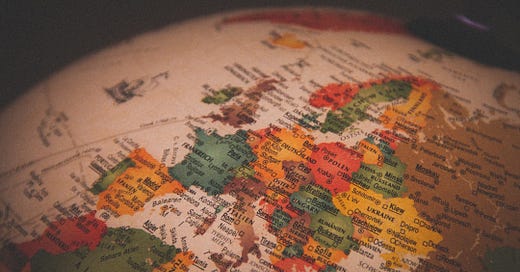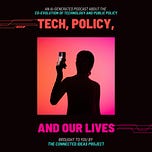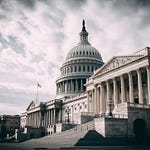The first time I stepped into a biofoundry, I realized we were living through a moment that most people hadn’t yet noticed. It wasn’t a cleanroom full of microchips, it was a factory of living cells, designed and optimized to manufacture the future. Biotech had moved beyond the lab, beyond medicine, and into the very infrastructure of global power.
This isn’t speculation. It’s happening. And if we don’t recognize the shift, we’ll find ourselves in the same position as those who underestimated the digital revolution before it.
I’m writing this as a primer ahead of the final report from the National Security Commission on Emerging Biotechnology (NSCEB), which will outline the policies and investments necessary to secure U.S. leadership in this space. That report will focus on the what and how. This piece is about the why.
The podcast audio was AI-generated using Google’s NotebookLM.
The Bio-Industrial Era Has Arrived
For decades, biotechnology was thought of primarily in terms of health, pharmaceuticals, gene therapies, and vaccines. Those are still critical, but they no longer define the limits of the field. Biotech is now an industrial technology, reshaping the way we produce food, energy, materials, and strategic resources. The same way semiconductors transformed computing, biology is transforming manufacturing.
Right now, companies like Ginkgo Bioworks are engineering cells to produce chemicals and materials at scale. LanzaTech is using microbes to capture industrial emissions and turn them into fuel. Pivot Bio is replacing synthetic fertilizers with nitrogen-producing bacteria. These are not isolated experiments; they are the beginnings of a fundamental shift in global industry.
But here’s the challenge - biology operates on different timelines than software or silicon. We’re used to the rapid iteration of digital technology, where breakthroughs happen in months. Biotech moves at the pace of life. It takes time to scale, but once it does, it doesn’t just disrupt industries, it rewrites the foundations of economies.
I wanted to dive deeper into this topic for you, so I wrote you an Exclusive for Subscribers, long-form piece titled “NatSec Biotec: How Biotechnology is Reshaping Global Power”.
It's >10,000 words, so I’m sharing here rather than yet another email directly to your inbox, but I’d welcome your thoughts and feedback. If you’re tired of sound bites:
The Biotech Race is a National Security Race
Every major geopolitical shift has been driven by control over foundational technologies. The steam engine powered industrial empires. Oil shaped the 20th-century world order. Semiconductors now define digital sovereignty. And in the 21st century, biotechnology will be the next front of global power.
China understands this. It has embedded biotechnology into its national development strategy, investing billions into synthetic biology, biomanufacturing, and genetic engineering. The numbers are staggering, China’s bioindustry market value grew 127-fold in just five years, reaching over $380 billion by 2021. This isn’t just about innovation; it’s about industrial dominance. The Chinese government is backing biotech not as a niche sector but as the backbone of economic and national security resilience.
This is Chip War 2.0, but instead of transistors, the building blocks are DNA.
Whoever controls biomanufacturing controls the future supply chains of food, energy, and materials. Whoever leads in biosecurity dictates global health and defense capabilities. This is not a distant possibility, it is unfolding right now.
The United States is waking up to this reality. The White House declared biotechnology a national priority in just the last few years and investments have surged. But recognition is not enough. The pace of progress must match the scale of the challenge.
AI + Biotech: The Ultimate Accelerator
What makes this moment different from past biotech booms is the accelerating force of artificial intelligence. AI is no longer just improving digital industries, it’s revolutionizing biology itself.
Machine learning models are designing proteins, optimizing microbial pathways, and automating what used to be painstaking trial-and-error processes. Instead of spending years engineering a single molecule, AI is compressing that timeline into months, sometimes weeks.
The implications are enormous. AI-designed cells will soon manufacture the world around us. Bioreactors will produce fuels, chemicals, and food at industrial scales. The convergence of AI and biotechnology isn’t just increasing efficiency it’s rewriting what is possible.
We are on the brink of a new era where biology is programmable. And if the U.S. doesn’t lead, someone else will.
What Comes Next?
The upcoming NSCEB report will provide the detailed roadmap for ensuring that the U.S. remains at the forefront of this shift. But reports don’t drive change, people do. And to act, we need a clear understanding of the stakes.
Invest in Biomanufacturing – Just as the CHIPS Act secured semiconductor supply chains, we need to scale up domestic biomanufacturing. We cannot allow the future of materials, fuel, and food to be outsourced.
Train a New Workforce – Biology is now an engineering discipline. We need more people who understand both fields. A new generation of bioengineers, AI-biologists, and synthetic microbiologists must be trained, not just in academia, but in hands-on industrial settings.
Embed Biotech in National Strategy – This is not a niche industry. This is the foundation of future economic resilience. The U.S. must treat biotech as critical infrastructure and embed it into defense, trade, and industrial policy.
Bridge AI and Biotech – AI is not just for chatbots. We need dedicated initiatives to integrate AI into bioengineering, accelerating everything from drug discovery to sustainable materials development.
The Future is Written in DNA
A decade from now, the countries that dominate biotechnology will be the ones setting the rules of the global economy. This is not just about who makes the best medicine. This is about who controls the energy we use, the food we eat, the materials we build with, and the security of our infrastructure.
The NSCEB report will lay out the how. You are the why.
Biotech is geopolitics. Biotech is strategy. Biotech is power.
The question is: who will lead it?
Now, let’s get to work.
-Titus















Share this post